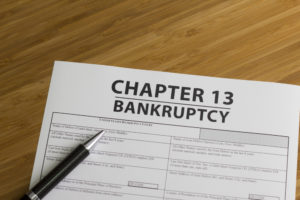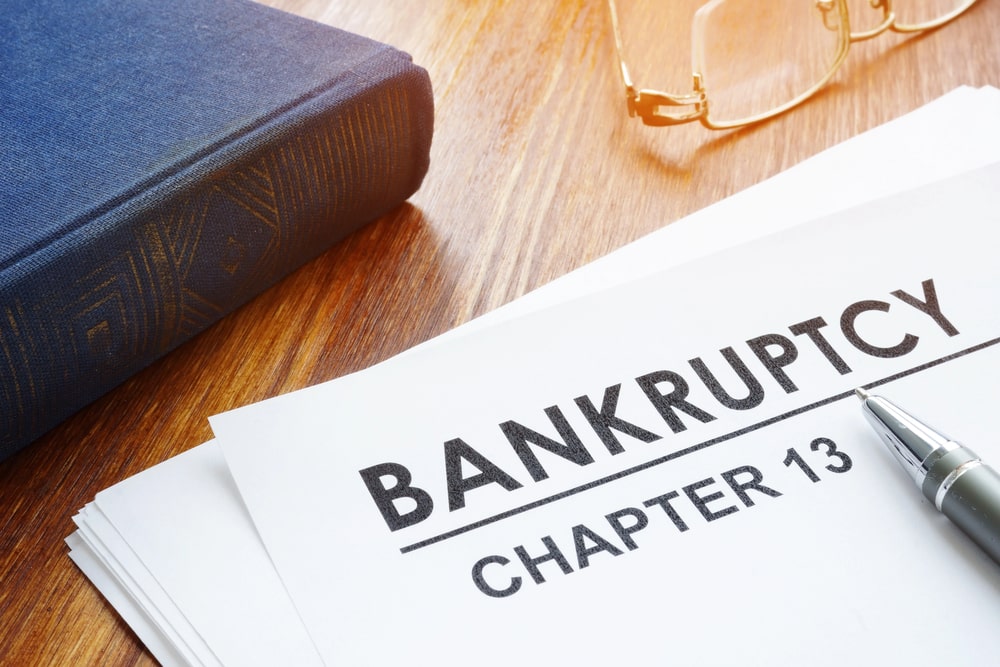 Filing for bankruptcy can be a mix of confusing, frustrating, and even frightening. It is always important to have the assistance of a Chapter 13 bankruptcy lawyer Fort Worth, TX from Leinart Law Firm on your side to help you with filing paperwork, staying on track for your case, and then rebuilding your credit after you have filed. A bankruptcy lawyer will know all of the ins and outs of Texas laws and be able to determine how to move forward with your life.
Filing for bankruptcy can be a mix of confusing, frustrating, and even frightening. It is always important to have the assistance of a Chapter 13 bankruptcy lawyer Fort Worth, TX from Leinart Law Firm on your side to help you with filing paperwork, staying on track for your case, and then rebuilding your credit after you have filed. A bankruptcy lawyer will know all of the ins and outs of Texas laws and be able to determine how to move forward with your life.
What Will Happen Once You File?
Chapter 13 bankruptcy is great because you get to keep many of your assets and may just restructure some of your debts. Some debt is almost impossible to expel in any kind of filing for bankruptcy. For example, it is very difficult to get student loans expelled from your list. Once you file for bankruptcy, your lawyer can walk you through every step after you file. You will likely have new debts to pay, but also may get some of them forgiven.
You will also want to begin rebuilding your credit after filing for bankruptcy. Your lawyer will help give you tips and tricks on how to do this and what will be important moving forward. Your Chapter 13 bankruptcy lawyer in Fort Worth, Texas from Leinart Law Firm may also suggest speaking with a financial planner to determine how to deal with your finances moving forward. This will hopefully keep anything like this from happening again and will help you be in the best financial shape of your life. It will take budgeting and hard work, but will ultimately be worth the peace of mind that you will have.
Set Up a Consultation Today
No matter what is going on with your finances to consider filing for bankruptcy, you need to hire an experienced Chapter 13 bankruptcy lawyer in Fort Worth, Texas from Leinart Law Firm today to help with your case. We have seen it all and will have valuable ideas on helping to improve your financial situation. You may think that hiring a lawyer is counterproductive, as it will cost some money, but we will work with you to figure out a budget that will work with your financial situation. Ultimately, we could end up saving you much more than you end up paying us in the long run. Set up a consultation today to learn more.
Understanding More About Chapter 13 Bankruptcy
A Fort Worth, TX Chapter 13 bankruptcy lawyer knows that Chapter 13 bankruptcy is a type of bankruptcy that allows individuals to reorganize their debts and create a plan to repay them over a period of three to five years. While it may not be the best solution for everyone, there are many benefits to filing for Chapter 13 bankruptcy in Texas. At Leinart Law Firm, we believe these are some of the most significant benefits:
- Stop foreclosure: If you are facing foreclosure, filing for Chapter 13 bankruptcy can stop the process and allow you to catch up on your mortgage payments over time.
- Stop creditor harassment: Filing for Chapter 13 bankruptcy can put an immediate stop to creditor harassment, including phone calls, letters, and other forms of communication.
- Keep your property: Unlike Chapter 7 bankruptcy, which requires the liquidation of assets to pay off debts, Chapter 13 bankruptcy allows you to keep your property while you repay your debts over time.
- Reduce interest rates: In many cases, Chapter 13 bankruptcy can reduce the interest rates on certain types of debts, making them more manageable to repay.
- Reorganize debts: As a Fort Worth Chapter 13 bankruptcy lawyer knows, Chapter 13 bankruptcy allows you to reorganize your debts and create a plan to repay them over a period of three to five years. This can make it easier to manage your finances and pay off your debts without the stress of collection actions.
- Protect cosigners: If you have cosigners on your debts, filing for Chapter 13 bankruptcy can protect them from collection actions while you work to repay the debt.
- Protect tax refunds: In some cases, Chapter 13 bankruptcy can protect your tax refunds from being seized by creditors or used to pay off debts.
- Discharge some debts: While not all debts can be discharged in Chapter 13 bankruptcy, certain types of debts, such as credit card debt, medical bills, and personal loans, can be discharged once your repayment plan is completed.
- Avoid liens: Chapter 13 bankruptcy can prevent certain types of liens from being placed on your property, such as tax liens or mechanic’s liens.
- Improve credit score: While filing for bankruptcy will have a negative impact on your credit score, Chapter 13 bankruptcy can help improve your credit score over time by showing a commitment to repaying your debts.
Furthermore, Chapter 13 bankruptcy can also provide relief for individuals who have fallen behind on their taxes, student loans, or child support payments. By reorganizing these debts and incorporating them into the repayment plan, individuals can catch up on these obligations while avoiding the stress of collection actions.
Get Bankruptcy Help Today
Overall, Chapter 13 bankruptcy can be a valuable tool for individuals who are struggling with debt and need a way to reorganize their finances and create a plan for repayment. If you are considering filing for bankruptcy in Texas, it is important to consult with an experienced bankruptcy lawyer who can help you understand your options and navigate the process. Reach out to Leinart Law Firm to speak with our Fort Worth Chapter 13 bankruptcy lawyer today.
What Debts Can Be Included In A Chapter 13 Bankruptcy?
Filing for Chapter 13 bankruptcy is a way for individuals to reorganize their debts and create a manageable repayment plan. One of the most important aspects of this process is understanding which debts can be included in the bankruptcy filing. By including eligible debts, we can work toward regaining financial stability while meeting our obligations to creditors.
At Leinart Law Firm, we’ve helped many individuals in Fort Worth navigate Chapter 13 bankruptcy and determine how to handle their debts effectively. Contact us today to speak with a Fort Worth chapter 13 bankruptcy lawyer.
Can Secured Debts Be Included In Chapter 13 Bankruptcy?
Yes, secured debts, such as mortgages and car loans, can be included in a Chapter 13 bankruptcy plan. These debts are tied to specific property, meaning the creditor has the right to repossess or foreclose if payments are not made.
Filing for Chapter 13 can help prevent foreclosure on a home or repossession of a vehicle by allowing us to catch up on missed payments through the repayment plan. The plan often restructures the terms, making payments more manageable.
What About Unsecured Debts Like Credit Cards And Medical Bills?
Unsecured debts, including credit card balances, medical bills, and personal loans, are included in a Chapter 13 bankruptcy. These debts are not tied to collateral, so the repayment plan prioritizes them after secured debts and other obligations like child support or taxes.
In many cases, unsecured creditors receive only a portion of what’s owed, depending on our income and the repayment plan’s structure. At the end of the repayment period, any remaining unsecured debts are typically discharged.
Are Tax Debts Eligible For Inclusion In Chapter 13?
Some tax debts can be included in a Chapter 13 bankruptcy, but it depends on the type of tax and when it was incurred. For example, income taxes that meet specific criteria, such as being more than three years old and properly filed, may be eligible for inclusion and discharge.
However, newer taxes and other types of tax obligations, such as payroll taxes, are generally considered priority debts and must be paid in full through the repayment plan.
Can Child Support Or Alimony Be Included In Chapter 13?
Child support and alimony payments are considered priority debts, meaning they cannot be discharged through bankruptcy. However, Chapter 13 can help us manage these obligations by incorporating them into the repayment plan.
The plan allows for catching up on past-due amounts while continuing to make regular payments moving forward. This can provide relief if we’ve fallen behind and need time to get back on track.
Are Student Loans Covered Under Chapter 13?
Student loans are treated differently in bankruptcy. While they can be included in a Chapter 13 repayment plan, they are considered non-dischargeable, meaning they typically cannot be eliminated at the end of the repayment period.
Including student loans in the plan allows for temporary relief by consolidating payments and potentially reducing monthly amounts. However, any remaining balance will still need to be addressed after the bankruptcy concludes.
Contact Our Firm Today
Understanding which debts can be included in a Chapter 13 bankruptcy is essential for creating an effective repayment plan. Whether dealing with secured debts, medical bills, or tax obligations, this process provides a path to regain control of our finances. If you’re in Fort Worth and considering Chapter 13, reach out to Leinart Law Firm to speak with a trusted Fort Worth chapter 13 bankruptcy lawyer. Let’s work together to find the right solution for your financial challenges.


